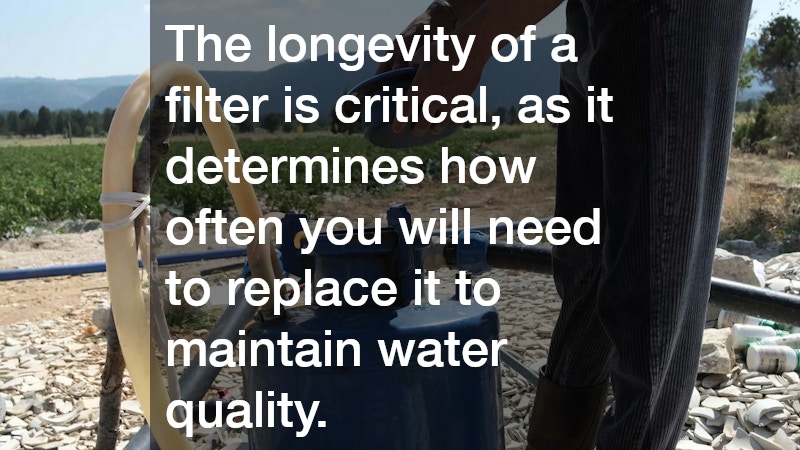In this article, we will explore the essential considerations for selecting the ideal local home water filtration system to ensure clean and safe drinking water for you and your family. From understanding the types available to evaluating your specific needs, this guide will provide valuable insights to make an informed decision.
What are the Different Types of Home Water Filtration Systems?
Point-of-Use Systems
Point-of-use systems are designed to filter water at the exact location it will be used, such as the kitchen sink or a showerhead. These systems are beneficial for targeting specific uses and ensuring immediate access to clean water.
Such systems include options like under-sink filters, faucet-mounted filters, and countertop units. Each offers varying levels of filtration effectiveness, catering to different contaminant concerns.
Installation of point-of-use systems is generally straightforward and can often be done by the homeowner. They provide excellent solutions for renters or those who prefer minimal alterations to their homes.
Whole House Systems
Whole house systems treat all the water that enters a residence, ensuring that every faucet and showerhead dispenses filtered water. This comprehensive approach is ideal for families concerned about overall lifestyle water quality.
These systems often come with various types of filters designed to remove specific contaminants commonly found in municipal and well water sources. They’re perfect for households with members prone to skin sensitivities or other health issues that benefit from higher water purity.
Due to its complexity, the installation of a whole-house system typically requires professional assistance. Despite the higher initial cost, these systems offer long-term benefits by extending the life of plumbing and appliances.
How Do You Assess Your Water Quality Needs?
Testing Your Water
Water quality testing is crucial for understanding the specific contaminants present in your water supply, including harmful substances like lead, chloramines, or pesticides. Various home testing kits are available, or you can hire professionals for a more detailed analysis.
By identifying the contaminants, you can select a local home water filtration system equipped to effectively address those specific concerns. It’s essential to choose a system that can handle both the type and concentration of impurities detected.
Regular water testing can also track changes in water quality over time, providing insights into seasonal or environmental impacts. This proactive approach ensures you maintain high water quality standards in your home.
Identifying Health Risks
Consider any underlying health conditions that might exacerbate risks associated with specific water contaminants. For instance, individuals with compromised immune systems require more stringent filtration solutions to avoid health implications.
Local water quality reports often highlight prevalent contaminants in your area, guiding your selection of appropriate filtration technology. Staying informed about your region’s water quality standards helps protect your household from potential issues.
Certain demographics, such as infants or the elderly, might be more vulnerable to contaminants in water. Ensuring that your local home water filtration system meets their specific needs will provide peace of mind and protect their health.
What Factors Should You Consider When Choosing a Filtration System?
Cost and Maintenance
Cost is an important factor when selecting a local home water filtration system. Upfront costs vary depending on the type and complexity of the system. It’s crucial to consider not only the purchase price but also the long-term maintenance costs associated with your choice.
Regular maintenance, such as replacing filters, can increase a system’s overall expense. Investing in a system with low maintenance needs, balanced with effective performance, will ensure value over time.
Some systems may appear affordable initially, but can incur high ongoing costs due to the frequent need for filter changes or professional servicing. Weighing all expenses will guide you toward a solution that remains financially feasible in the long run.
Installation and Space Requirements
Consider whether professional local home water filtration system installation is required for the system you’re interested in, as this can add to the total cost. Certain filtration systems require extensive knowledge and tools to install correctly.
Space availability within your home can also influence your choice. For instance, a small under-sink system may be more practical if you have limited space, while homes with ample utility room space can accommodate larger whole-house systems.
Visual impact is another consideration, especially for point-of-use systems, which are more visible. Sleek, compact designs can integrate seamlessly into kitchen aesthetics without detracting from the space’s appearance.
Which Features and Specifications Are Important?
Filter Life and Performance
The longevity of a filter is critical, as it determines how often you will need to replace it to maintain water quality. A longer filter life generally means reduced maintenance costs and effort.
Performance ratings indicate a filtration system’s capability to remove various contaminants. Systems with high-performance charts ensure better purification levels, providing safer water for daily use.
Certification and Standards
Look for certifications from institutions like NSF or WQA to confirm that the system meets stringent testing standards. These benchmarks ensure that the system is effective against specific contaminants as advertised.
Choosing the right local home water filtration system involves understanding your specific water needs, assessing the available options, and considering factors such as cost, installation, and performance. By carefully evaluating these aspects, you can select a system that provides clean, safe, and healthy water for your household.






